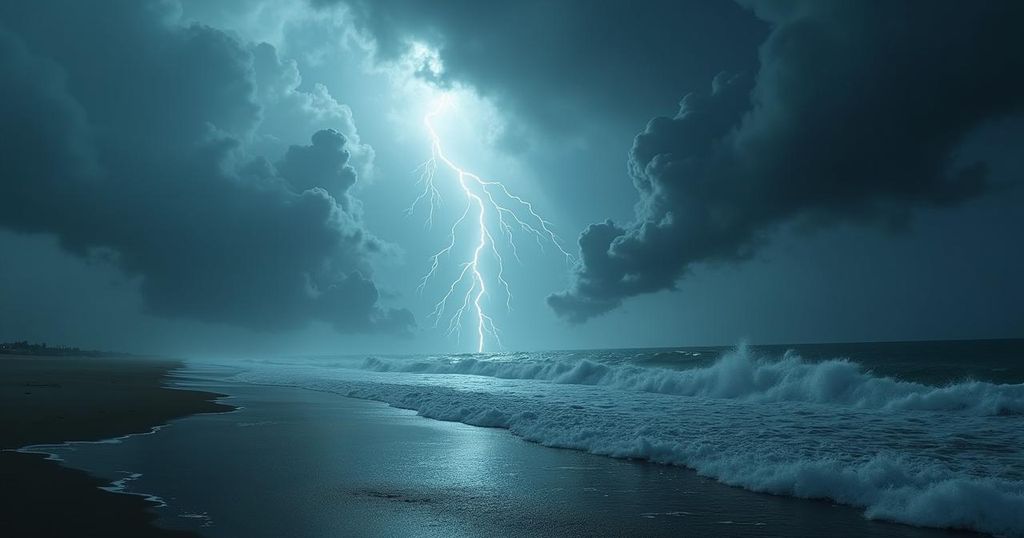Hurricane Politics: A Tale of Division and Disaster Management
The recent hurricanes, Helene and Milton, have ignited fierce political debates in the United States, particularly regarding the role of climate change. Accusations of governmental negligence and misinformation have permeated discourse, highlighting divisions among Republican supporters. In contrast, India has effectively managed cyclone responses, though it continues to approve environmentally detrimental projects that may worsen climate impacts.
The recent occurrence of hurricanes in the United States has sparked intense political discourse, particularly as the nation approaches its presidential elections. In recent weeks, Hurricanes Helene and Milton have caused significant devastation in several states, prompting Republican supporters of former President Donald Trump to voice accusations against the Biden-Harris administration. These supporters allege that the government has manipulated weather events and prioritized relief efforts for immigrant populations over American citizens. This narrative is compounded by the proliferation of misinformation, including falsified images depicting the aftermath of these hurricanes, which aim to bolster claims of governmental negligence. At the core of this political strife is the notable refusal among some Republican factions to accept the scientific consensus regarding the link between climate change and the increasing severity of global weather events. Research indicates that climate change is significantly enhancing the intensity and precipitation levels of hurricanes, yet powerful oil lobbies and certain political figures in the U.S. continue to downplay these findings, attributing disaster outcomes to bureaucratic failings rather than environmental factors. Contrastingly, India’s approach to cyclone management has been commendable, showcasing effective disaster response mechanisms. The Indian government’s proactive measures during Cyclone Nisarga in 2020 resulted in the evacuation of over 100,000 individuals, while Cyclone Fani in 2019 saw a remarkable evacuation of 1.2 million residents in under two days. However, while India excels in managing the aftermath of such natural disasters, it too faces criticism for permitting environmentally detrimental projects that exacerbate climate change. Initiatives such as the Char Dham Pariyojana, which involves significant environmental alteration in ecologically sensitive regions, pose questions about the sustainability of India’s disaster preparedness in relation to an increasing frequency of climate-related adversities.
The discourse surrounding recent hurricanes in the United States is underscored by a complex interplay of climate change denial, political maneuvering, and the dissemination of misinformation. As the U.S. approaches election season, the impact of these hurricanes has become a focal point in political debates, revealing deep divides over environmental issues and governmental responsibility. Contrasting this, India has developed strategies for effective disaster management; however, the country’s continued endorsement of environmentally harmful developments raises concerns about its long-term resilience to climate change effects.
In conclusion, the recent hurricanes serve not only as a catalyst for political debate in the United States but also as a reminder of the critical intersection between climate change and disaster management. While some U.S. political entities continue to deny the effects of climate change, India illustrates a model of effective disaster response tempered by vulnerabilities due to environmentally harmful policies. Both nations must navigate the challenges posed by climate change judiciously, ensuring that political ideologies do not overshadow urgent environmental realities.
Original Source: timesofindia.indiatimes.com




Post Comment